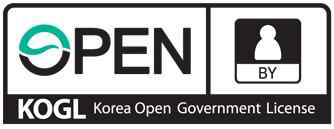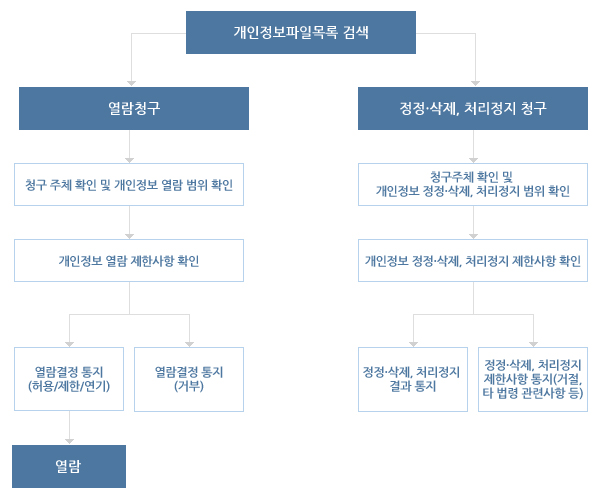Press Releases
Speaker Kim meets with Kenyan President Ruto
- Feb 27, 2023
- 6057
- Speaker proposes exploring cooperation in the fields of renewable energy, small modular reactors, and climate change response
- President expresses hopes of gaining experience from Korea in nuclear power sector
- Speaker stresses Kenya is a key partner in developing Korea-Africa relations
- President reiterates support for Busan’s bid to host World Expo 2030, citing progress in cooperation between Busan and Mombasa
Speaker of the Republic of Korea’s National Assembly Kim Jin-pyo met with President of Kenya William Ruto on November 23 at the Speaker’s reception room, where they discussed strengthened economic cooperation, expanded collaboration and exchange between Korea and Africa, and Busan’s bid to host World Expo 2030. This visit marked the first by a President of Kenya in 32 years, following a visit by then-President Daniel arap Moi in 1990.
Speaker Kim offered congratulations to President Ruto, who took office in September, stating that “Kenya, as a leading economy in East Africa and the East African Community (EAC), is a key partner for developing a reciprocal and future-oriented partnership between Korea and Africa.”
Kim noted, “The National Assembly has actively engaged in activities through the ‘National Assembly’s Forum for Africa’s New Era,’ a members’ research group established in 2013, and is pushing forward with a plan to create ‘a forum for parliamentary diplomacy between Korea and Africa.’” He then suggested strengthening parliamentary cooperation and expanding exchange between parliamentarians in order to develop the countries’ bilateral relationship.
President Ruto agreed on the need to forge a closer relationship, citing their sound, long-standing relationship ever since Korea and Kenya established diplomatic ties in 1964.
Speaker Kim and President Ruto held an in-depth discussion on ways to expand economic and development cooperation between the two countries, presenting detailed strategies in the process. Kim expressed appreciation for economic cooperation with Kenya — Korea’s largest trading partner in East Africa — saying, “The Korean government has so far pushed ahead with various collaborative projects including policy advice for Kenya’s development of industrial complexes and trading programs in Korea, and Korea’s major business groups like Samsung and LG have advanced into the country.”
The speaker then proposed exploring new collaborative opportunities in the nuclear power, renewable energy and climate change response fields, diversifying the traditional areas of bilateral economic cooperation.
On the nuclear power generation, Kim remarked, “Kenya is reportedly preparing to introduce nuclear power facilities such as small modular reactors. I hope Kenya will be able to develop its technical capabilities in order to successfully deploy nuclear facilities, which will pave the way for greater industrial cooperation between the two nations.”
On the topic of climate change response and renewable energy investment, the Speaker said he heard about the extensive damage Kenya had suffered from its most serious drought in 40 years and offered his heartfelt condolences. He then expressed his wish to discuss Kenyan investment in renewable energy infrastructure, alongside joint responses to climate change.
Speaker Kim said, “Kenya was recently selected as a strategic partner in the Africa region for the Korean government’s Economic Development Cooperation Fund (EDCF). The two countries are reportedly scheduled to sign a USD 1 billion EDCF Framework Arrangement for 2022 to 2026 today, which I hope will help explore many collaborative infrastructure projects for Kenya.”
※ EDCF Framework Arrangement: an agreement between one or more businesses or organizations to establish fundamental compromises between parties and complete a comprehensive agreement that helps reduce waste in processes and physical resources.
President Ruto expressed strong support for Kim’s suggestion that the level of collaboration between the two countries could grow further. He noted that Kenya, as a leader in the green energy sector, generates 93 percent of its electricity from renewable sources, and thus wants to learn from Korea’s experience to expand nuclear generation and achieve the goal of 100 percent of energy generation from renewables within 10 years.
Ruto continued by saying Kenya has faced serious effects of climate change and secured a USD 1 billion fund to take measures on such projects as dam construction and planting 15 billion trees. He added that he cannot agree more on the need to place top priority on climate change in the policymaking arena.
Speaker Kim then expressed his gratitude to President Ruto for lending a hand to Busan’s bid to host World Expo 2030 through Korean envoys dispatched to Kenya to celebrate his inauguration in September. The Speaker said, “Korean conglomerates operating in Kenya have joined the efforts to rally support for Busan’s bid, and I hope that World Expo 2030 will give us an opportunity to bolster cooperation between businesses of both countries.” He added that if Busan becomes the venue for World Expo 2030, Korea will be able to present its vision for responding to climate change and share its development experience with Kenya, thereby broadening collaboration.
President Ruto mentioned that progress had been made in setting up a sisterhood relationship between Busan and Mombasa, Kenya’s largest port city. He responded that Kenya borders on the Indian Ocean with its abundant resources, and talks have been progressing on ways to utilize these resources to benefit both sides.
Meanwhile, President Ruto asked that Korea increase imports of Kenyan agricultural products, citing the trade imbalance between the two countries. Ruto noted that Kenya imports mobile phones and other IT products from Korea while exporting agricultural goods including tea, coffee, and avocados, which creates a serious bilateral trade imbalance. He then requested the National Assembly’s interest and support to reduce the imbalance through such measures as rationalizing the 40 percent tariff on tea and coffee. In response, Speaker Kim vowed to make efforts to review the issue of “reducing administrative procedure and rationalizing the tariff to increase imports of quality agricultural products from Kenya, based on close cooperation with related departments of the Korean government.”
President Ruto also expressed the need to expand personnel exchanges between the two nations and urged the National Assembly’s support to make Kenya the 17th country whose citizens can enter the Korean labor market. Speaker Kim responded by saying, “The National Assembly will discuss this issue with related government departments and then provide you a response.”
Attendees at the meeting from the Kenyan side included Kenyan Cabinet Secretary for Foreign & Diaspora Affairs Alfred N. Mutua, Cabinet Secretary for National Treasury & Economic Planning Njuguna S. Ndung’u, Cabinet Secretary for Agriculture Mithika Linturi, Cabinet Secretary for Trade, Investment and Industrialization Moses Kuria, Cabinet Secretary for Health Susan Nakhumicha Wafula, Cabinet Secretary for Roads, Transport and Public Works Kipchumba Murkomen, and Cabinet Secretary for Information, Communication & Digital Economy Eliud Owalo. From the Korean side, attendees included Chairman of the Trade, Industry, Energy, SMEs and Startups Committee Youn Kwan-suk; National Assembly members Jun Hye-sook, An Ho-young (Vice President of the Korea-Kenya Parliamentary Friendship Group), Suh Jung-sook (Executive Member of the Korea-Kenya Parliamentary Friendship Group); Secretary General of the National Assembly Lee Kwang-jae; Chief of Staff to the Speaker Park Kyung-mee; Ambassadorial Advisor to the Speaker for Foreign Affairs Cho Koo-rae; and Korean Ambassador to Kenya Yeo Sung-jun.


